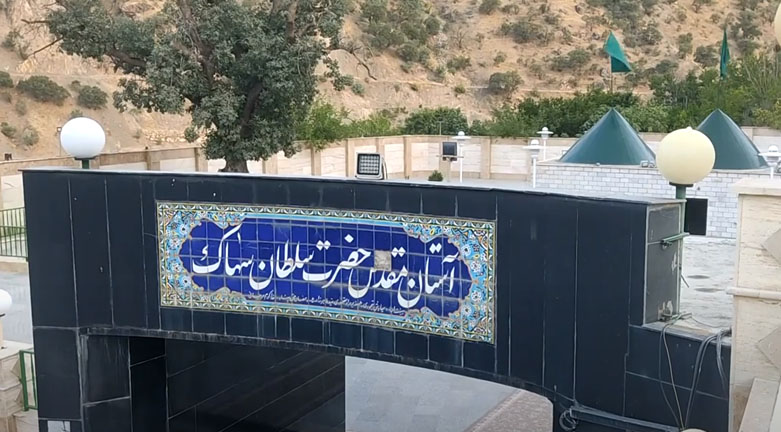Sultan Sahak Shrine: the holiest place of worship for Kakais
Sahak, who founded Yarsanism, is also known among his followers as the Sultan of Truth (Saheb Karam) and the King of Hawraman.

ERBIL (Kurdistan 24) – A shrine in honor of Sultan Sahak – also known as Sultan Ishaq – is located in the mountains of the Hawraman region of Iranian Kurdistan (Rojhilat).
Sahak, who founded the religion of Yarsanism, is also known among his followers as the Sultan of Truth (Saheb Karam) and the King of Hawraman. While his exact date of birth and death is unknown, Sahak is believed to have lived during the late 14th Century to early 15th Century.
He founded Yarsanism in what is now western Iran, and his followers primarily reside in Iran, Iraq, and Turkey. Members residing in the Kurdistan Region and Iraq’s disputed territories are usually considered ethnic Kurds.
Furthermore, not only do Kakais (denotes followers of Yarsanism) visit his shrine, but many tourists from all over Iran, East Kurdistan, and other countries flock to the Sultan's shrine for pilgrimage.
Most pilgrims stay at least one night, and some stay more than a month. Visitors are provided with free accommodation and food, irrespective of religious beliefs.
Yarsanism is based on four principles: purity, truth, selflessness, and serving others. While many of the Kakais' sacred texts are written in Kurdish, it is a source of contention among Kakais as to their identification as Kurds.
Having suffered religious persecution for many years, both historically and in recent decades, members of the community have often sought to avoid attention by keeping their practices relatively secret. While exact figures are unknown, it is estimated that at least 100,000 Kakais live in various parts of the country, mostly in the disputed territories, such as Kirkuk, Nineveh and Makhmur.
They are among the many minorities in Iraq that have been systematically targeted by ISIS, or Daesh as the organization is known locally, but have not garnered the same level of news coverage and attention as other more well-known groups, like the Yezidis. A significant number of Kakai families evacuated their villages in Kirkuk’s Daquq district following the militant group’s rise to prominence in 2014.
Followers of the faith eventually took up arms and, along with Kurdish Peshmerga forces, contributed to defending the frontline against militants of the terrorist organization that continued to operate in surrounding areas.
Previously in Jan. 2023, Kurdistan Region Prime Minister Masrour Barzani issued a congratulatory statement to the Kakai community for the Qultas holiday.
In the statement, the PM noted the pivotal role of the Kakais throughout history by “actively participating in the struggle and sacrifice of the Kurdish people,” and called them “an indigenous community of Kurdistan.”
Read more: PM Barzani Congratulates Kakai’s Qultas Day
